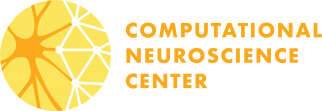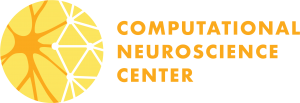Undergraduate Training Program
We are not currently accepting training program applications. We encourage you to check out the Neural Computation minor!
The undergraduate Program in Neural Computation and Engineering has been designed to bring together students majoring both in biological and mathematical sciences. The program will help students to acquire or deepen the knowledge and skills required to integrate mathematical approaches into a study of the nervous system, and to develop biologically motivated and grounded models of brain function. This two-year program offers:
- Access to some of the otherwise restricted courses of the NEUSCI major (without the requirement to complete that major)
- A special, more computationally-oriented laboratory experience in neurobiology
- Mentorship from a cross-departmental faculty committee that will assist in course selection and identification of research opportunities
- Interaction with a graduate student mentor
- A stipend for research
- Funds for travel
- Opportunities to present research at campus-wide and national meetings
Entry into the program is competitive; up to 12 students will be selected each year.
Interested students are strongly recommended to enroll in NEUSCI 490, Seminar in Computational Neuroscience, in the fall. This course provides an exciting and accessible overview of computational neuroscience research on campus. We also strongly recommend a background in mathematics that goes beyond calculus, preferably including background in linear algebra and differential equations. Examples include a course of the equivalent of AMATH301 or AMATH422.
Please reach out to cncadmin@uw.edu with any questions.
Program requirements
Trainees will be expected to complete:
(1) Either (1*) two quarters of NEUSCI 301 Cellular and Molecular Neuroscience and 302 Systems and Behavioral Neuroscience OR (2*) BIOL130 Introduction to Neuroscience. If not in the NEUSCI major but completing the NEUSCI301/2 sequence, laboratory participation is required for NEUSCI 301 only and will be undertaken in a separate section with distinct data analysis.
(2) AMATH 342: Introduction to Neuronal Coding and Computation. Covering mathematical approaches to neuronal excitability, networks and concepts of neural coding. Alternating seminar/workshop in programming for neuroscience.
(3) NEURO 545, Quantitative Methods in Neuroscience.
(4) At least one quarter of NEUSCI 450 Journal Club in Computational Neuroscience or AMATH 500 Theoretical Neuroscience Journal Club.
(5) At least three quarters of mentored research in a laboratory of participating faculty.
(6) Presentation of research at the yearly Computational Neuroscience Connection.
| Schedule | Course title | Credits |
|---|---|---|
| Jun. Aut | NBIO 490: Seminar Course in Computational Neuroscience | 1 |
| Jun. Win | AMATH 342 Neuronal coding and computation NBIO 301 Introduction to Cellular and Molecular Neurobiology (*1) |
3 4/5 |
| Jun. Spr | BIOL130 Introduction to Neuroscience (*2) | 4/5 |
| Sen. Aut | NBIO 302 Introduction to Systems and Behavioral Neurobiology (*1) | 4/5 |
| Sen. Win | NEURO/PBIO 545: Quantitative Methods in Neuroscience | 3 |
| Jun/Sen | NBIO 450* Current Research Literature in Comp. Neuroscience OR AMATH 500 Theoretical Neuroscience Journal Club |
2/6 |
Students should take additional mathematical/computational or neuroscience courses as needed; they will decide upon additional curriculum choices with the help of a mentoring committee.
Application procedures
The application (download here) requires a current transcript, a personal statement describing your goals and why you are interested in the program (600 words or less) and a letter of support from a faculty member (optional but recommended).
Applications may be reviewed throughout the Summer into Autumn Quarter up until the deadline, which is usually the 2nd Friday in October. Contact the program office for details. Highly qualified students may be admitted soon after submitting their applications. We will wait to evaluate the majority of applications until the application deadline has passed.
The admissions committee reviews all applicants based on the following criteria: a strong preparation in either mathematical sciences or biology as indicated by grades in all courses required for admission; indication of ability in the less well-covered discipline; overall GPA; personal statement reflecting interest in and commitment to the study of computational neuroscience. Minority students are encouraged to apply. Application forms are available in the Biology Department office in 318 Hitchcock Hall or on this website (link above). Students who require an early decision (e.g. for financial aid or visa requirements) should consult program staff.


